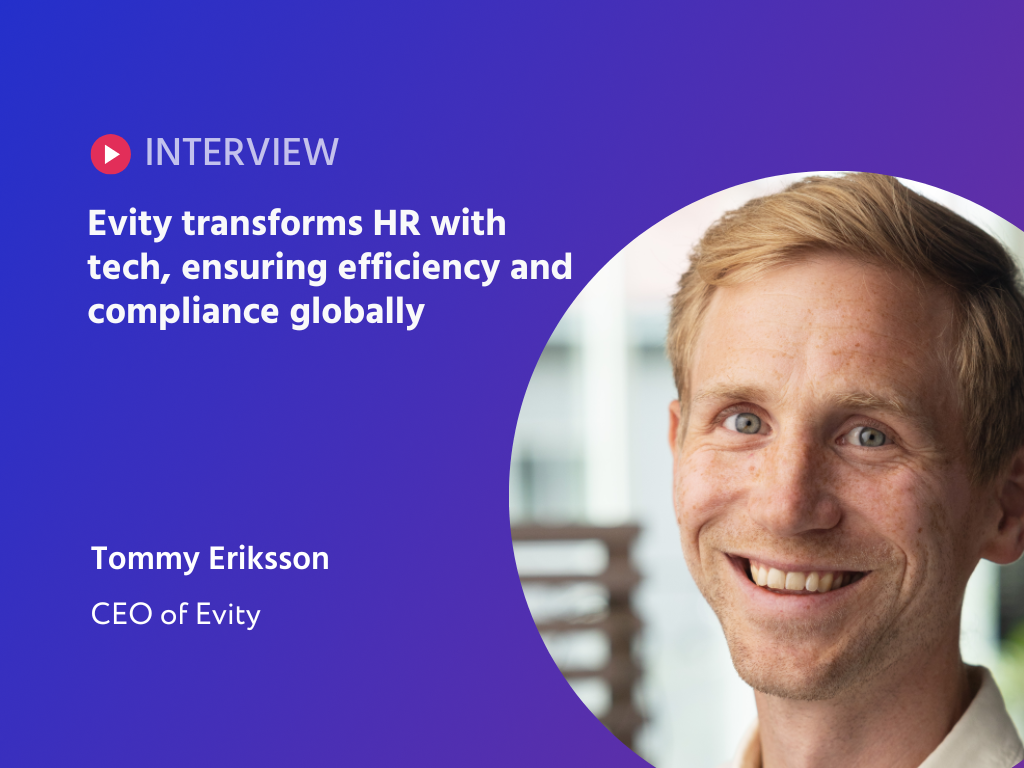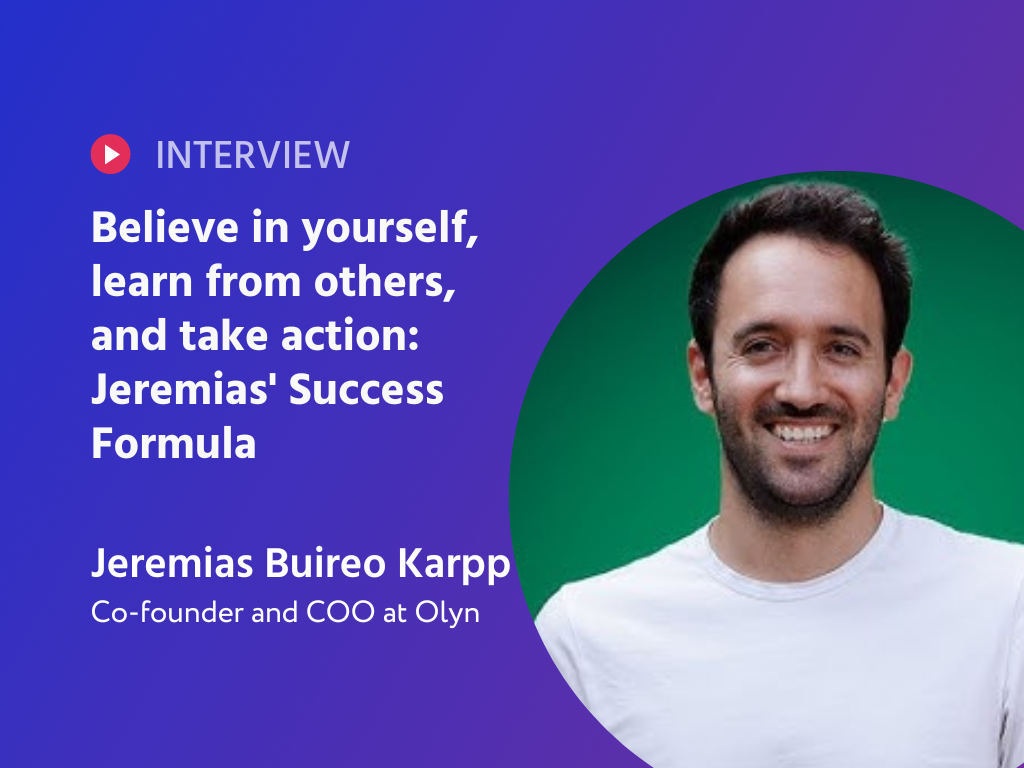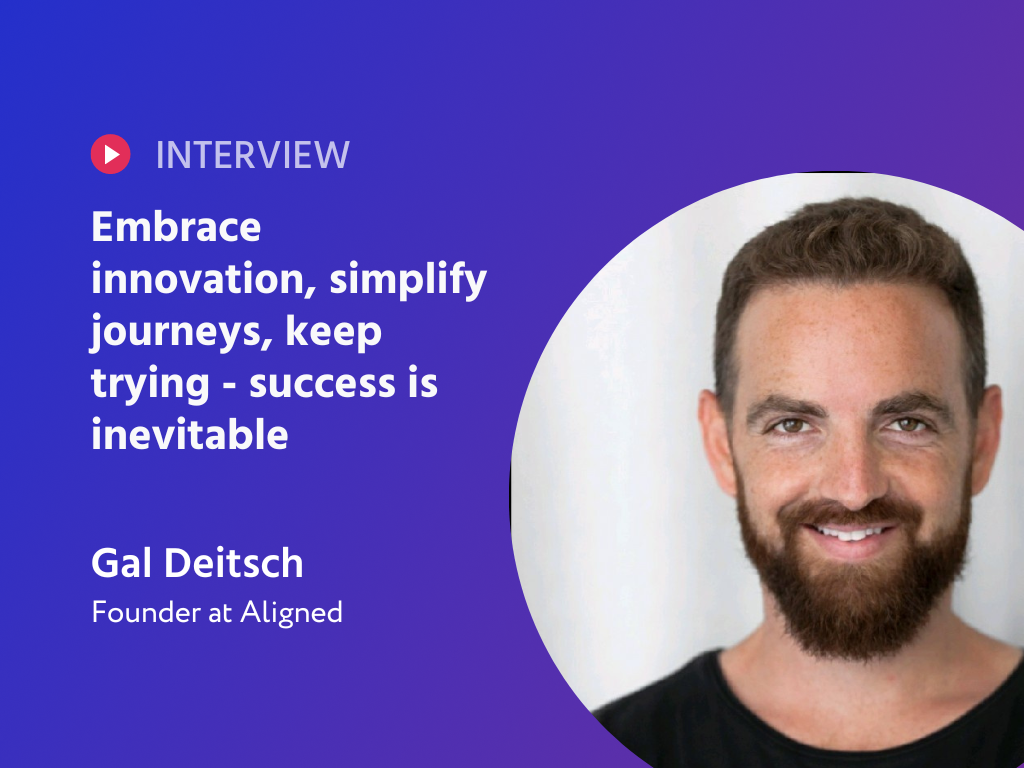In this edition of Bright Founders Talk, we sit down with Lior Eldan, the Co-Founder and COO of Moburst, a globally recognized digital marketing agency. What began over a decade ago as a mobile marketing startup has now evolved into a full-service digital powerhouse with a team spread across Israel, Europe, and the U.S.
Lior shares the impressive growth story of Moburst, built on innovation, strategic acquisitions, and a bold entrepreneurial spirit. With a strong focus on mobile-first experiences and cross-disciplinary expertise, Moburst has become a one-stop shop for development, media buying, PR, and more. In this conversation, Lior opens up about his early exposure to tech in 90s Israel, his fascination with digital marketing, and how those passions paved the way for Moburst’s success.
He also dives into the company’s aggressive M&A strategy and the value of acquiring founder-led agencies to unlock new synergies. From building a strong client base to maintaining a talented, distributed team, Lior’s journey is filled with lessons for any aspiring founder. Join us as we explore the story behind Moburst's rise and the entrepreneurial mindset that continues to fuel its momentum.
From MiniDiscs to M&As: How Lior Eldan’s Tech Roots Sparked a Global Growth Machine
It’s easy to look at Moburst today—a full-service digital agency with a global footprint—and forget that it all started with a scrappy idea between two army buddies. But for Lior Eldan, the journey wasn’t just about seizing market trends. It was deeply personal. Growing up in 90s Israel, where tech was just starting to explode, Lior had a front-row seat. “We had a cell phone in the car before anyone else,” he laughs, recalling how his dad’s high-tech career brought gadgets from Japan straight into their home. That early exposure planted the seeds of a lifelong obsession with technology and innovation.
We had a cell phone in the car before anyone else
Before Moburst came to life, Lior had already immersed himself in the wild frontier of SEO and online reputation management. “It was the Wild West back then,” he says. “Google search was still fresh, and we were figuring out how to shape it.” His passion for marketing met his tech-savviness at just the right moment—around 2012, when mobile was the next big thing. That’s when fate, or maybe smart timing, reconnected him with Gilad, a friend from the army who had just started a mobile consultancy. Together, they didn’t just build a company—they ignited a movement in mobile-first thinking.
Moburst’s evolution was anything but accidental. Initially focused solely on mobile, the duo started getting client requests that pushed them beyond app screens. “We realized we didn’t have to build everything from scratch—sometimes it’s smarter to acquire,” Lior explains. And that’s exactly what they did. With three agency acquisitions in under a year, Moburst began expanding its capabilities and clientele at warp speed.
Turning Apps Into Hits: Lior Eldan on the Secret Sauce Behind Moburst’s Mobile Growth Magic
For Lior Eldan, helping apps go viral isn’t just about cool campaigns or trendy influencers—it’s about diving deep into the product itself. At Moburst, his team doesn’t just “run ads.” Instead, they take a full-funnel approach, asking hard questions early: Is the landing page optimized? Is the onboarding smooth? Is the product even ready for users? “We’ve worked with companies of all shapes and sizes—from Reddit to early-stage startups—and what we’ve learned is, it’s never just about marketing,” says Lior. Behind every million-download success story is a maze of testing, tweaking, and trial-and-error.
One of the biggest mistakes companies make, Lior points out, is underestimating the sheer effort—and budget—it takes to get noticed. “Just launching your app isn’t enough. You need to invest way more into marketing than you did into development,” he explains. With over three million apps floating around in the stores, standing out is tougher than ever. That’s why Moburst often works with clients even before launch, helping them maximize that short window when app stores boost new arrivals. It’s about using every advantage and stacking the deck in your favor before the downloads even start.
Just launching your app isn’t enough. You need to invest way more into marketing than you did into development
Interestingly, the approach Moburst takes doesn’t drastically change whether the client is a tech giant or a scrappy startup—it just scales. Big brands care about tiny optimization tweaks that affect millions of users. Startups? They need bolder swings to make a dent. But the mindset stays the same: test relentlessly, measure obsessively, and double down on what works.
The Rise of AEO: Lior Eldan on Why Brands Need to Be Seen by AI, Not Just People
Just when you thought the world had enough acronyms, here comes another—AEO. But trust Lior Eldan to make it sound like the next big thing in digital marketing. "It’s all about visibility on LLMs like ChatGPT,” he says. In other words, forget just optimizing for Google—brands now need to make sure AI mentions them when users prompt questions. Moburst is already playing in this space, combining PR, podcast bookings, and smart content placement to boost a brand’s “AI footprint.” It's SEO 2.0, but with a twist: citations without links, mentions in high-authority publications, and ripple effects you can't track on a typical analytics dashboard.
But that's just the start. Lior’s team is diving headfirst into AI-powered creative testing too. The dream? Faster ideation, lower production costs, and way more flexibility. They’ve already used generative tools to mock up video scenes, which later became full productions. “You still need human creatives to keep the brand’s voice consistent, but AI can do the heavy lifting,” says Lior. It's not about replacing talent—it’s about freeing it up to focus on strategy, storytelling, and the stuff algorithms still can’t quite master.
You still need human creatives to keep the brand’s voice consistent, but AI can do the heavy lifting
On the data side, Moburst is building smarter systems to figure out where each marketing dollar should go. With Google and Meta pushing their own AI tools, Lior sees value in layering custom insights on top of those systems. His team’s upgraded their entire BI infrastructure to support AI-first workflows, automating the boring stuff like slide decks and spreadsheets. That way, analysts spend less time copying and pasting, and more time spotting patterns that actually move the needle.
“You’re Doing It Wrong”: Lior Eldan on Why AI Needs to Start From the Bottom Up
While some people are still deciding whether AI is overhyped or overpowered, Lior Eldan has already picked a side. “I’m totally sold,” he says, without missing a beat. At Moburst, Lior isn’t just using AI—he’s rethinking how his entire company operates with it. A year ago, they created an AI Champions program, pulling in people from every department—designers, content writers, developers, account managers—and tasking them with identifying real, tangible AI use cases. The results? Hackathons where non-technical staff built functioning tools and prototypes, powered by AI, that would’ve taken weeks (and a few engineers) just a year ago.
But Lior knows the tech isn’t a silver bullet. In fact, he believes most companies are getting AI adoption completely wrong. “95% of AI pilots fail,” he points out, citing a recent MIT study. That’s not because AI isn’t valuable—it’s because companies either isolate it in one team or throw it at problems without purpose. At Moburst, the strategy is bottom-up enablement: giving every employee the knowledge, tools, and confidence to experiment, iterate, and build. AI isn’t just for dev teams or CTOs—it’s for anyone with a problem to solve.
95% of AI pilots fail
And the vision doesn’t stop at Moburst. Lior and his team are now packaging their AI transformation model as a service for clients. It’s a new kind of offering—less about marketing campaigns, more about internal reinvention. “Everyone wants AI,” he says, “but most don’t know what to actually do with it.” By helping businesses build cross-functional teams and run AI hackathons of their own, Moburst is aiming to bridge that gap. Because in a world changing at breakneck speed, adaptability isn’t optional—it’s everything.




